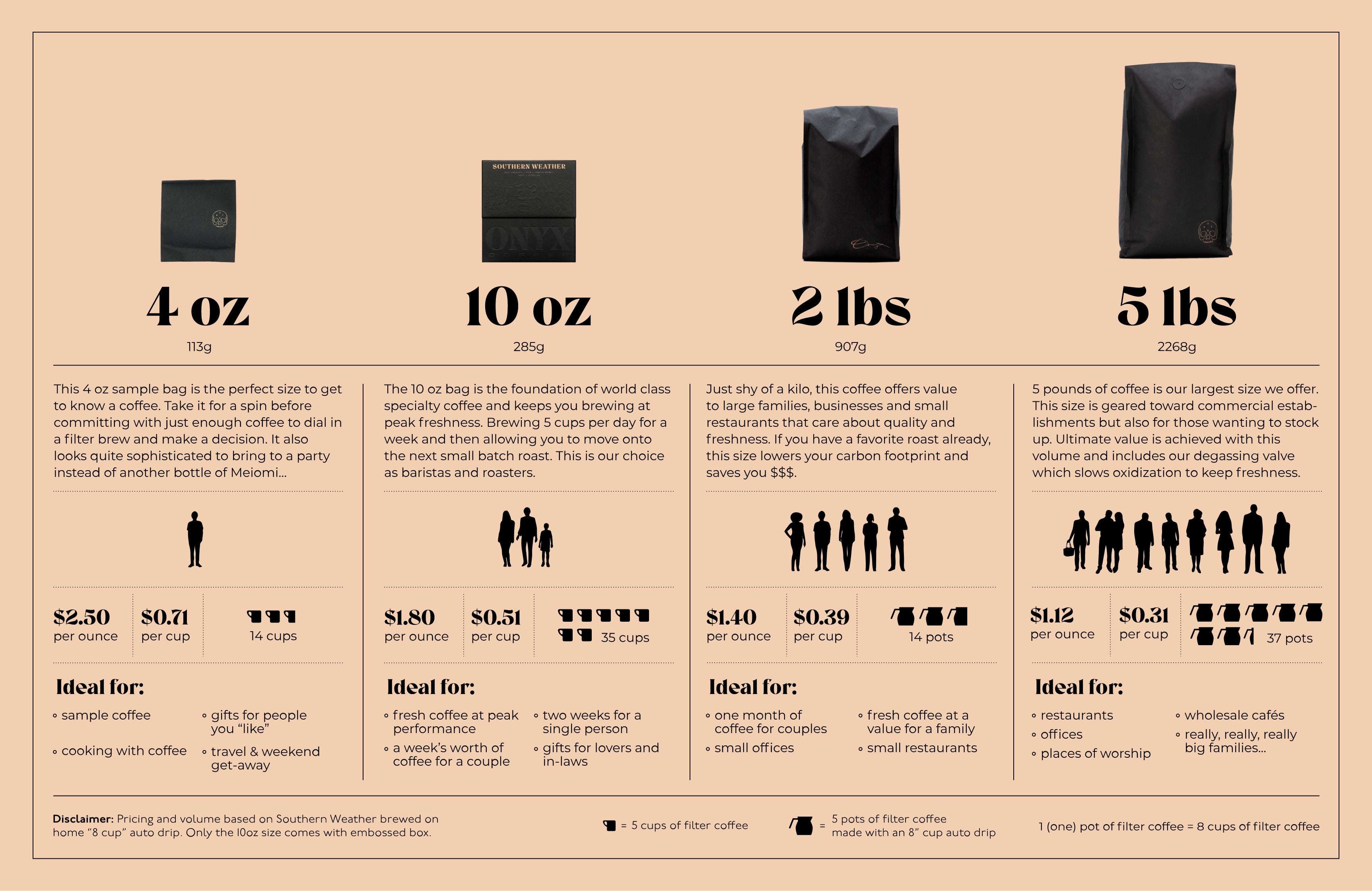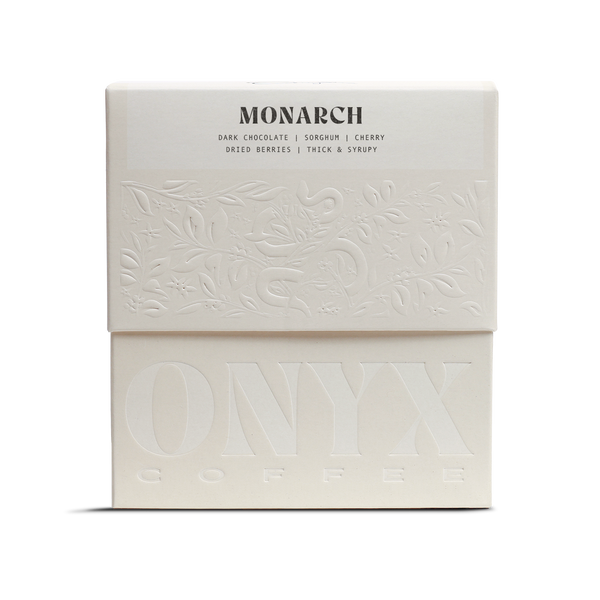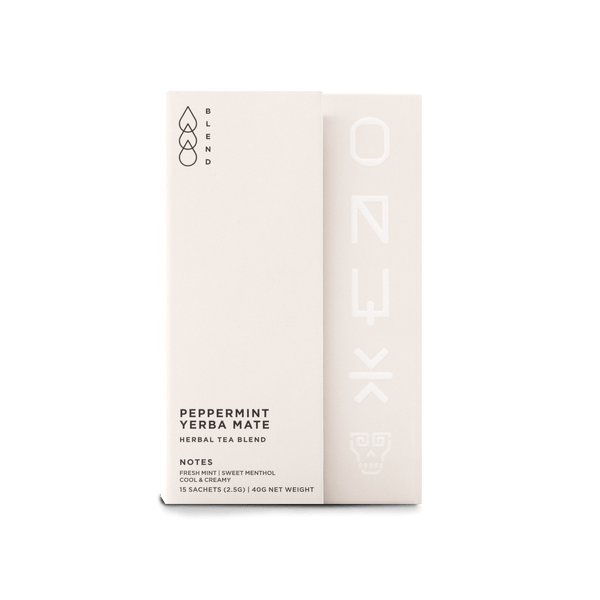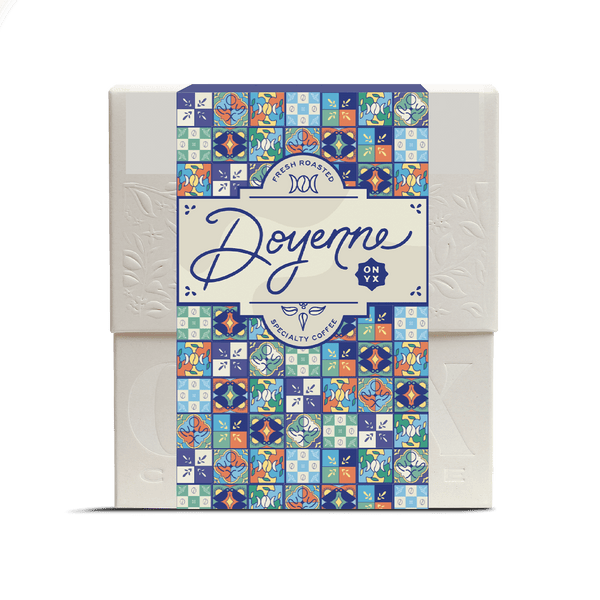Story
Four years ago, we ventured into building a sourcing program in Honduras. For us, there was only one person we would trust to build a completely fresh program in a relatively unknown region: Benjamin Paz. A figure who looms large in specialty coffee and in the community, Benjamin runs the specialty program for San Vicente, as well as operating four full production farms planted with exotic varieties. Within the community, Benjamin facilitates relationships with producers across Santa Barbara with roasters across the globe. We currently work with eleven producers in the area, with some of our highest quality washed lots coming from Santa Barbara.
Two seasons ago, we were offered a few natural processed lots, produced by the Sagastume family. The Sagastume family has farmed in this region for decades, and have adopted a fresh perspective on coffee farming. Whereas they had traditionally planted Pacas and washed nearly all their coffee, they’ve planted a few new varieties, as well as doing some natural experiments.
This originates from Kilverth Sagastume, the son of a father and son duo cultivating neighboring plots of land.
NATURALLY PROCESSED COFFEE
Natural coffees are beautiful… Okay, natural coffees are beautiful when done properly, but can be equally terrible when things go wrong. Natural processing, or dry processing, refers to the act of drying and fermenting coffee inside the cherry. Long before the age of portafilter tattoos and dual-boiler home espresso machines, coffee was picked and dried this way out of convenience. It is, to this day, still the most convenient and economically friendly way to process coffee cherries. (It’s estimated that dry-processing can use up to 90% less water than the washing process.) So why isn’t all coffee processed this way? Well, as coffee made its way across the world, it was commoditized and standardized, just like all other products spread by colonialism, but that’s a whole other story... Adding to the boom of washed processing, the natural process method can be tricky to get right, due to the delicate nature of fermentation and drying. What does all this have to do with the final cup? Well, when you leave the skin and fruit of the coffee cherry on the seed throughout fermentation and drying, that fruit begins to break down, imparting esters that influence delicate florals and big fruit notes into the seed that survive the roasting process. If it’s rushed or handled incorrectly, this fruit rot can lend off-flavors to the coffee, making the final cup “dirty” or “fermenty.”
How is this done? It starts at harvest, with the selective harvesting of ripe coffee cherries. Only the fully mature cherries are picked, as they have the highest sugar content and flavor potential. The harvested cherries are then sorted to remove any damaged or under ripe cherries. This ensures that only the best quality cherries are used in the primary fermentation. After sorting, the cherries are spread out in thin layers on large drying beds or patios to dry naturally under the sun. (or sometimes under shade) They are periodically raked and turned to ensure even drying. This step can take several weeks depending on weather conditions. As the cherries dry, they undergo a natural fermentation process. Enzymes present in the fruit interact with the sugars and other compounds, causing chemical reactions that impact the flavor profile of the coffee. This fermentation adds complexity and fruity flavors to the final cup. During the drying/ fermentation process, the cherries must be protected from rain, humidity, pests, and mold.
Farmers often cover the cherries with tarps during the night or when there's a risk of adverse weather. The coffee cherries are dried until they reach an optimal moisture content of around 11-12%. At this point, the cherries have shrunk, and the outer skin and fruit can be easily removed to reveal the green coffee seed inside, which is ready for roasting after a short boat ride. Basically, that single cherry begins to slowly decay, and controlling that delicate action through advanced technique and metrics allow us, lucky folks, to drink wonderfully floral and fruity coffees.







